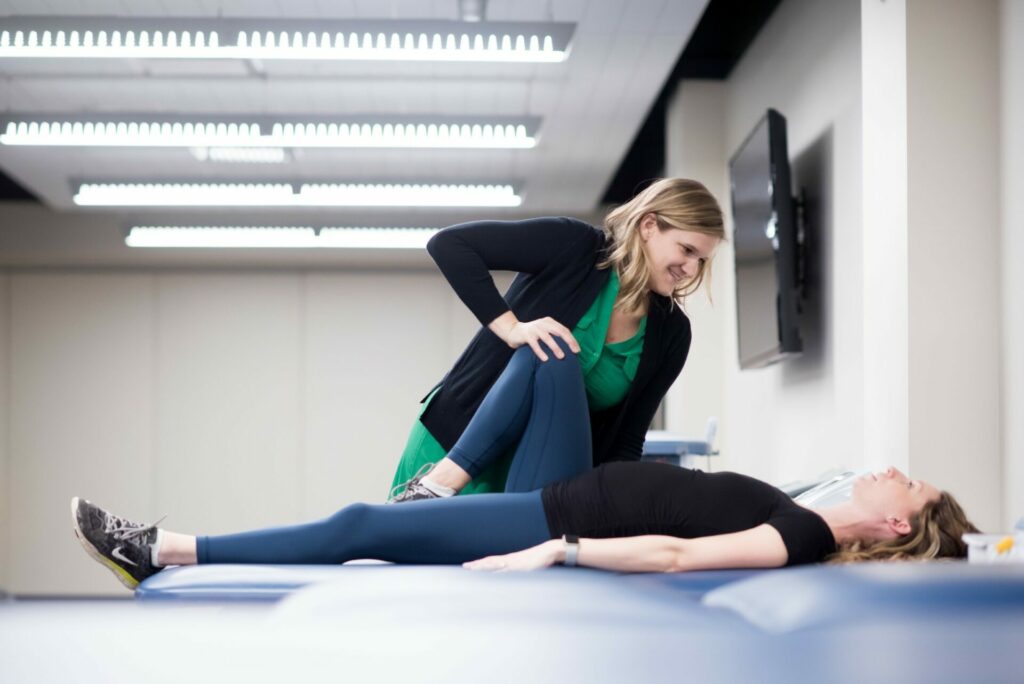Athletic Training As A Career. For those passionate about sports, fitness, and helping athletes reach their full potential, a career in athletic training can be immensely rewarding. For sports enthusiasts passionate about health and performance, a career in athletic training can be the perfect fit.
Athletic trainers play a crucial role in sports, supporting athletes in their physical conditioning, injury prevention, and recovery.
Athletic trainers play a vital role in sports and exercise, providing crucial support and care to athletes of all levels.
Athletic trainers are healthcare professionals who specialize in preventing, diagnosing, treating, and rehabilitating injuries in athletes.
They work closely with athletes to optimize their performance, enhance physical conditioning, and minimize the risk of injuries.
In this blog post, we will delve into the exciting field of athletic training, highlighting the responsibilities, educational requirements, career prospects, and personal fulfillment of pursuing this dynamic profession.

Education and Certification
Becoming an athletic trainer requires a solid educational foundation. Typically, athletic trainers hold at least a bachelor’s degree in athletic training from an accredited program. Athletic trainers collaborate with coaches, physicians, and other healthcare professionals to create comprehensive training programs, implement injury prevention strategies, provide immediate medical care, and design rehabilitation plans for athletes recovering from injuries.
Their expertise spans various areas, including emergency care, therapeutic modalities, strength and conditioning, and injury assessment.
These programs cover coursework in anatomy, physiology, exercise science, nutrition, injury evaluation, therapeutic techniques, and rehabilitation protocols.
In addition to formal education, athletic trainers are required to complete clinical hours under the supervision of experienced professionals to gain practical skills.
Opportunities
Most athletic trainers pursue certification through the Board of Certification (BOC).
To obtain certification, candidates must graduate from an accredited program and pass the BOC examination.
Certification is a standard requirement for practicing as an athletic trainer and ensures that professionals meet the highest standards of competence and proficiency in the field.
The demand for athletic trainers is steadily increasing, creating various career opportunities. Athletic trainers find employment in multiple settings, including professional sports teams, colleges and universities, high schools, sports medicine clinics, hospitals, fitness centers, and performing arts organizations.
They may work with individual athletes or teams or focus on specific sports or areas of specialization.
In addition to traditional sports settings, athletic trainers can explore roles in research, education, and administration within the field.

Personal Fulfillment
They may contribute to sports science research, serve as educators and mentors in academic institutions, or assume leadership positions in athletic training programs and organizations.
A career in athletic training offers immense personal fulfillment for those passionate about sports and the well-being of athletes. Athletic trainers are privileged to work closely with athletes, witnessing their growth, resilience, and triumphs.
They play a vital role in supporting athletes through physical and emotional challenges, fostering trust, and helping them overcome setbacks.
The satisfaction derived from helping athletes recover from injuries and return to their sport is immeasurable.
Athletic trainers positively impact athletes’ lives through injury prevention and rehabilitation and by promoting overall health and wellness.
They advocate for athletes, educating them on proper conditioning, nutrition, and injury prevention strategies, ensuring their long-term well-being on and off the field.
Frequently Asked Questions (FAQs)
Q1: What educational path is required to become an athletic trainer?
A1: To become an athletic trainer in athletic training from an accredited program is typically required. These programs cover courses to become a muscular trainer in anatomy, physiology, exercise science, nutrition, injury evaluation, therapeutic techniques, and rehabilitation protocols. Additionally, clinical experience under the guidance of experienced professionals is a crucial component of athletic training education.
Q2: Is certification necessary for practicing as an athletic trainer?
A2: Yes, certification is essential for practicing as an athletic trainer. Most athletic trainers pursue certification through the Board of Certification (BOC). Certification requires graduation from an accredited program and completing the BOC examination. This certification ensures that professionals meet the highest standards of competence and proficiency in the field.
Q3: What career opportunities are available for athletic trainers?
A3: Athletic trainers can find employment in various settings, including professional sports teams, colleges and universities, high schools, sports medicine clinics, hospitals, fitness centers, and performing arts organizations. They may work with individual athletes or teams or specialize in spe prior fic sorts or areas of interest. Additionally, athletic trainers can explore research, education, and administration roles within the field.
Myths About athletic trainers
- They work with athletes to enhance their performance and ensure their well-being, while personal trainers primarily focus on individual fitness and exercise programs.
- While both professions involve fitness and exercise, athletic trainers focus on sports medicine and specialize in injury prevention, evaluation, treatment, and rehabilitation.
- Athletic trainers work with athletes of all levels, from professional to recreational and youth sports.
- They provide services to individuals participating in a wide range of sports and physical activities, ensuring the safety and well-being of athletes in various settings.
- Embarking on a career in athletic training offers a unique opportunity to combine a love for sports, healthcare, and personal development.
Conclusion
Embarking on a career in athletic training allows individuals to combine their passion for sports and healthcare, making a difference in the lives of athletes.
With its diverse responsibilities, educational requirements, and promising career prospects, athletic training offers an exciting and fulfilling path for those who aspire to work at the intersection of sports, medicine, and human performance.
We hope to comprehensively understand this rewarding profession by dispelling common myths and addressing frequently asked questions.
If you are passionate about sports, health, and making a difference in athletes’ lives, consider exploring the exciting path of athletic training and discover a career that brings together your passions while contributing to the world of sports medicine.
If you desire to support athletes, enhance performance, and contribute to sports medicine, consider pursuing athletic training as a rewarding career choice.





